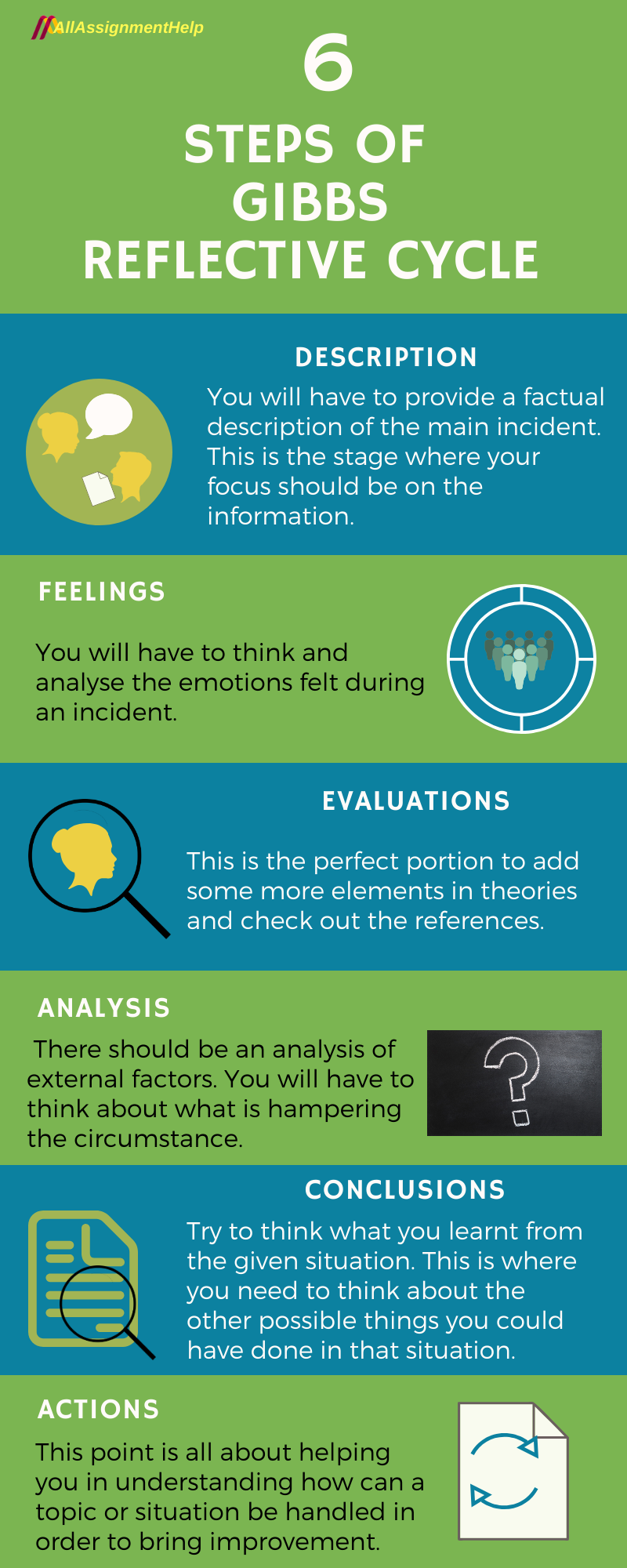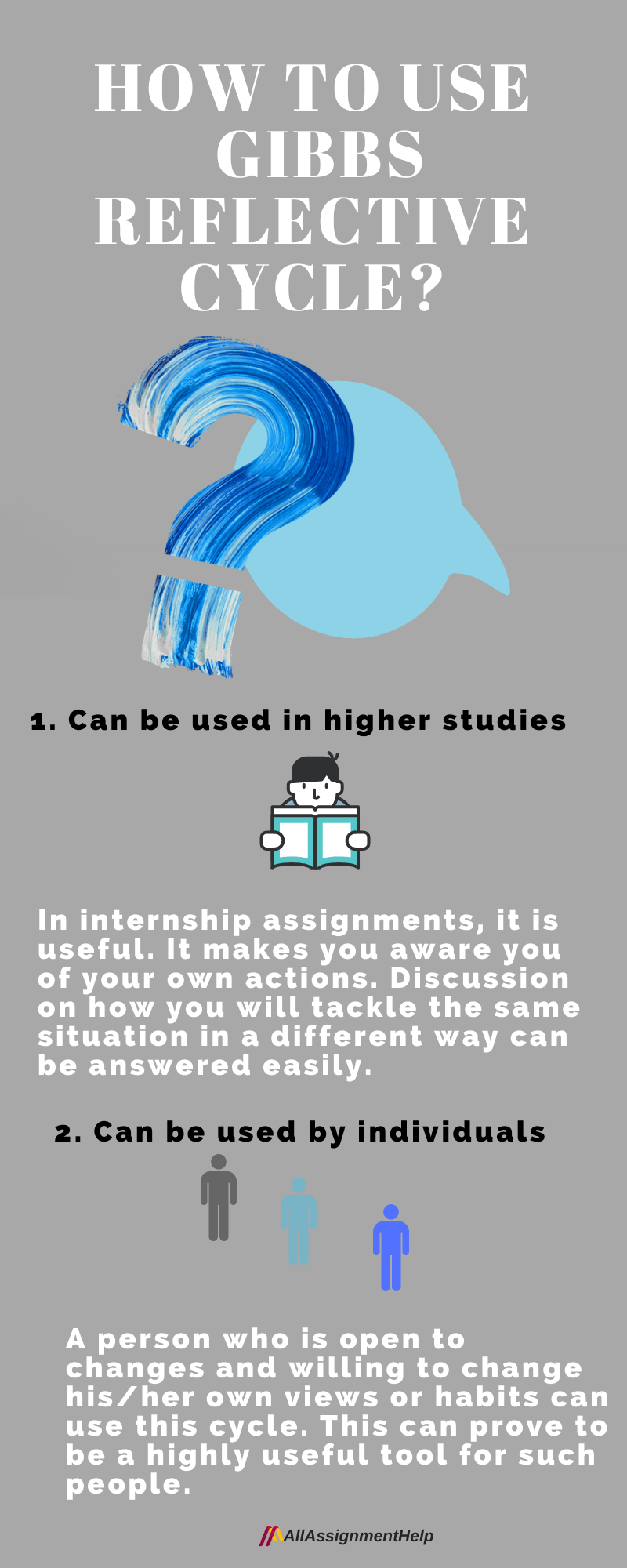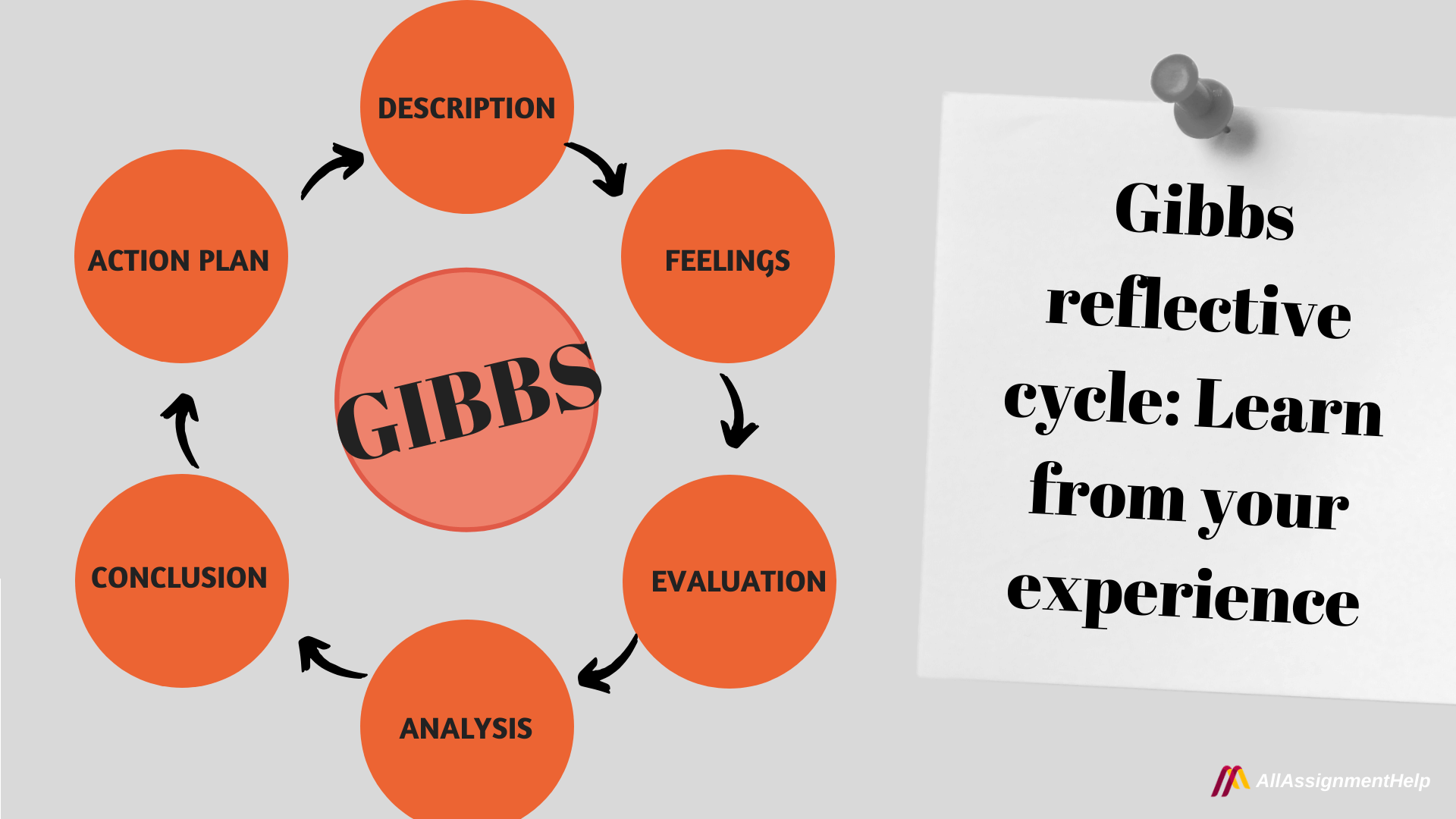Do you want to know what Gibbs reflective cycle is? If yes, then stay connected for a while. Because, in this article, I am going to explain everything you need to know.
There are many people who believe that humans learn the most from their experience. It is undeniably the right thing. However, if we do not reflect on our experience, learning can be tough. If we will not think about how can we perform better, or make things better in future endeavours consciously, we cannot learn from our experience. This is where the Gibbs reflective cycle comes to help.
By using the Gibbs cycle. we can think about the ways to bring improvements. We can assess the actions on past situations and figure out its “goods” and “bads”. This is what makes this cycle highly useful. It serves as a great medium to assess what has been done and how it could have been made better. You should know how this reflective cycle works as it will help in making sense of situations at work. So, let’s start with a detailed explanation and know what it is actually.
What is Gibbs reflective cycle?

An American psychologist and sociologist Graham Gibbs wrote a book called “Learning by Doing”. This was basically a reflective cycle model which came into existence in 1988. It encouraged readers to think about their experiences in a systematic way. Experiences they may have had from a specific activity, situation or event. It presented an idea to structure the reflection on every experience by the use of a circle. Now, this circle steadily grew more and more popular as Gibbs reflective cycle. There are many people across the globe who use this cycle or circle in today’s’ world.
The reason it has gained so much popularity and withstood the changes of time are the possibilities it provides. There are a lot of reasons why people use Gibbs reflective cycle. By using it you can look at both the positive and negative influences of a particular event. It bends the minds of people to think deeply about something they have lived, seen or experienced. It could be an activity or an event, anyone can easily recall or remember the details. When people think about something in detail it gives good results. Because it makes them aware of their own thoughts and actions. Awareness further helps them in changing or adjusting their behaviour. There are several other reflective cycles. However, Gibbs cycle can teach everyone a lot.
The process is essentially a cycle or loop, containing the following six elements:
Description
Here you will have to provide a factual description of the main incident. This is the stage where your focus should be on the information. No conclusions should be drawn here. In fact, the information which has to be presented to the readers should be highly relevant. The prompt questions you should know are:
- What actually happened?
- Where did the incident take place?
- When did the incident happen?
- What were the reasons for it?
- Why you (the author) was there?
- What were the measures you took as a reaction?
- Were there any other people when it happened? If yes, who?
- Did any of them give a reaction? How?
- What did you do?
- How did things changes and what happened at the end?
These questions provide a background to the incident. This is what builds a better understanding of the incident for author and readers as well. Make sure that you don’t forget to jot down vital details. Anything important must not be left out. For example, why a certain group was there in the event in question. The key is to keep all information present in the structure which can give a better understanding of an event. If this is the first time you are going to use it and it is being tough to start, you can take help from assignment experts and learn how to use the reflective cycle.
Feelings
Under this head, you will have to think and analyse the emotions felt during an incident. So, the questions which are formed generally involve the readers:
- How readers may have felt about the incident?
- What did you feel when the incident was yet to happen?
- What were you feeling while it was taking place?
- Did your reaction change by the end of the incident?
- Such questions will definitely help you to answer this section without being a mess.
Many people often face issues when it comes to express their feelings. By using Gibbs reflective cycle you can actually encourage them to do so. This shows that the Gibbs cycle can work well in an individual setting, in a counselling or in coaching as well. The final questions of this cycle help an individual to see an activity or event from others’ perspectives.
The thing which you must need to ensure here is to keep that section as crisp as possible. Don’t make it too wordy. Also, don’t enter into a complete chat or discussion. Doing this, you may end up in distracting your readers and even yourself from the main plot. In case this point is still not clear, visit experts at AllAssignmentHelp.co.uk. With their assistance, you can understand the right way to analyse feelings and emotions.
Evaluation
For evaluating the situation who should consider the following things:
- What are the factors which worked well?
- Which ones are the positives and negatives of the whole situation?
- What were the things that went well and what didn’t work out?
While you are evaluating an event or experience, don’t be biased. Generally, people limit themselves to good or positive experiences only. However, you should also evaluate the bad or negative experience. This is because the subsequent steps in the cycle will let you learn a lot. When it comes to a writer’s hand, this is the perfect portion to add some more elements in theories and check out the references. It becomes an easy task while judging and evaluating the main incident.
Analysis
As per the Gibbs reflective cycle, there should be an analysis of external factors. You will have to think about what is hampering the circumstance. Also, you should have a keen eye on the factors which helped the situation. The analysis of a piece of writing can be improved in multiple ways. It can be done by the knowledge gained from previous experiences. Also, you can give reference to literary articles. Do remember to link the theory and experience.
Conclusion
If you are used to essay writing or if you have gone through Gibbs reflective cycle pdf, you may already about this section. You may already have an idea of how a conclusion is supposed to be. However, in case, you are a beginner try to think what you learnt from the given situation. This is where you need to think about the other possible things you could have done in that situation. Answer to such questions: What are the skills or habits you will need to develop to cope with the situation in a better way? How differently or similarly would you react to the same circumstances in the future? In case of negative results, what would you do? How can you avoid negative outcomes? In case of positive results, how can you make it even better for yourself and the people around you?
Plan of action
This point is all about helping you in understanding how can a topic or situation be handled in order to bring improvement. Try to think a little harder, a little more. Is there any training skill, any skill or any move which can help you in dealing with the situation in a better way? Try and figure out is there any way to handle the situation or issue more effectively. After making a stern action plan you must know that you can take better measures to curb the situation if it occurs again.
Other than this, you must also learn from the possible mistakes you have committed, if any. At this stage only try to work hard and improve the areas which direly need improvisation. This specific tool has been structured as a cycle. If reflects a coaching relationship which is ongoing. The way you use it completely depends on the event (situation) and your relationship with a person who is getting coaching.
How to use Gibbs reflective cycle?

Gibbs Reflective Cycle can be used in a lot of ways. First of all this cycle is highly used in higher studies. When students have to carry out internship assignments it can be a good tool. By using it students can get aware of your own actions. The section which includes the discussion on how you will tackle the same event or situation in a different way can be answered easily. At the time students reach the end of the internship, they know how to behave professionally. Also, they become able to develop themselves to an extent where they can work on internship assignments without any support.
Other than this, individuals can also use Gibbs cycle. A person who is open to changes and willing to change his/her own views or habits can use this cycle. This can prove to be a highly useful tool for such people. There are a lot of coaches who use this cycle to make their students aware of negative or confused behaviour. It always helps in finding new ways to react differently to similar situations. Having a look at Gibbs reflective cycle template can help you in getting a clear picture. You can also go for Gibbs reflective essay examples to see how it works.
